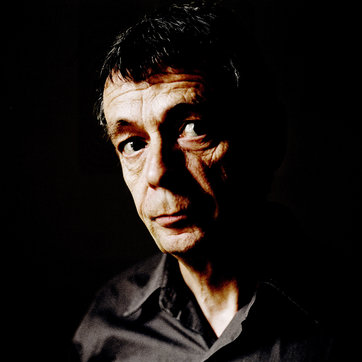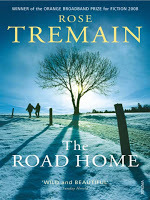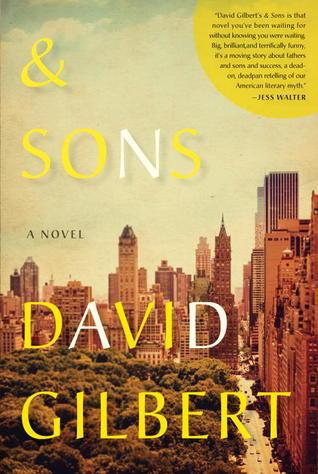If you have just joined us, the mortal bath and ten minutes hate are respectively re-reading and discovering Ian Fleming’s James Bond novels in chronological order (sort of).

Famous opening lines of novels often get bandied about in lists, but it wasn’t until I read From Russia With Love for the first time that I saw one that seems to have been overlooked among all the truths being universally acknowledged and weighing up of best and worst of times.
The naked man who lay splayed out on his face beside the swimming pool might have been dead.
Having thus garnered your attention, Ian Fleming doesn’t let it wander too far for the next 200 or so pages. We soon learn that the body might have been, but sadly isn’t, for this formidable not-dead unclothed man is the distinctly non-Russian-sounding Donovan Grant, Chief Executioner of SMERSH, ‘the Soviet organ of vengeance: of interrogation, torture and death’. A few, more detailed, yet taut chapters and we are apprised of the formidable team which that organisation has set against our man Bond. Chess master Kronsteen, the wolf-like cunning of Rosa Klebb and Grant himself, an animalistic turncoat driven to slaughter by the full moon. Not only to kill him, but to tear down his reputation and that of his Service. The trap will be sprung in Istanbul (Fleming having visited the city in 1955 on assignment for The Sunday Times). Bait is in the form of a defecting spy, the young-Greta Garbo-esque Tatiana Romanova and, almost as an afterthought, a Soviet cryptography machine.
The Bond of this book – who doesn’t even appear until Chapter 11 – is a long way from the lithe instrument of Casino Royale. Admitting that he lacks sharpness after a summer cooped up in London, when back in the saddle he misses signs, disregards warnings, misjudges character and places friends, as well as himself, in harm’s way unnecessarily. The intricacy and eccentricity of SMERSH’s plot has been designed by Kronsteen to catch M’s attention, tempt James into danger and leave his body and reputation destroyed, but there is a sense throughout of Fleming poking fun at his creation. He doesn’t hesitate to use Bond’s own proclivities against him, not just the beautiful girl, but the need to ‘be a sport’, ‘see the game through’ and gamble recklessly. Without the protection of Istanbul’s station head and all-round force of nature, Darko Kerim, one suspects that England’s finest wouldn’t have made it out of the airport alive.
Readers drawn towards the softer side of Bond, especially as displayed in previous jaunt Diamonds Are Forever, may feel warmed by the renowned international playboy beginning this follow-up mooning over ex-paramour Tiffany Case:
He missed her badly and his mind still sheered away from the thought of her.
But our protagonist is still operating in less enlightened times. M’s horror at the silliness of women who fall in love with a man’s picture gives way to chuckles over Bond’s Turkish wingman’s chaining of a naked girl to his kitchen table, before Tatiana demands that James beat her if she gets too fat for lovemaking post-defection. What fans of the film may recall as a titillating brawl between two Gypsy women is here much more brutal, although the participants do manage to rip the other’s clothes off at an early stage of the proceedings.
That said, Mr Bond is not quite the unrepentant caveman. There is a definite prominence accorded to the women that hold the fragile Bond together. From housekeeper May as adept with a boiled egg as she is at seeing off Communist agents, to the eternally chaste yet ‘most darling’ Lil Ponsonby, as well as Tatiana herself, who doesn’t let her all-conquering beauty hold her back from offering a warning about the assumed name of the man Bond takes for a fellow agent. The shame is his for how easily it is dismissed. And for all his air of ‘hey, sometimes these decorative non-men can be quite useful’, Fleming can’t take much joy in the slyness of Rosa Klebb. Scheming her way to Head of the Operations Department of the famed, feared, SMERSH and succeeding – where many men have tried and failed – in landing a poisoned blow on Bond, she lets the side down badly in one crucial area:
…the bulge of uniform that rested on the table-top looked like a badly packed sandbag, and in general her figure, with its big pear-shaped hips, could only be likened to a ‘cello.
Growing weary of his secret agent, Fleming had left the ending ambiguous enough for this to be the final Bond if he chose. Perhaps it would have been too much for him to have his man killed off by a hottie.
Despite the certainty of all involved with Her Majesty’s Secret Service that the operation is a trap, its nature and intended denouement remains obscured. Were it not for the executioner’s need, later to become a Bond film cliché, to spill the entire detail of the plot before making use of a weapon, our hero would have died at Grant’s hand none the wiser.
Old man, the story’s got everything. Orient Express. Beautiful Russian spy murdered in Simplon tunnel. Filthy pictures. Secret cipher machine. Handsome British spy with career ruined murders her and commits suicide… what a poke in the eye for the famous Intelligence Service! Their best man, the famous James Bond. What a shambles… What’s the public going to think? And the Government? And the Americans? Talk about security! No more atom secrets from the Yanks.
In the established narrative of post-War spy fiction, Ian Fleming is the hack, writing pulpy genre fiction that doesn’t stint on the girls, guns and gadgets and which pits our brave goodies against clearly distinguishable baddies. Set against him is the literary gent John le Carré, eschewing the clichés of the genre for subtly drawn commentary via characters that dwell in the grey areas. And while Donovan Grant’s crowing at Bond is what the mortal bath calls ‘typically Flemingian showing-off’, with it the author demonstrates that he knows exactly what Bond is and what he and his organisation’s place will be as the cynicism of the Cold War obliterates the idealism of World War II. From Russia With Love is a tight thriller, with no reduction in pace from earlier books. If you were to read just one Bond, I would advise that this be it. John F. Kennedy would no doubt agree. Not least because, for all the perceived glamour of Bond, there is far more overlap with the grey world of the George Smileys than that established narrative would allow for.
*
For a moment he thought nostalgically and unreasonably of the excitement and turmoil of the hot war, compared with his own underground skirmishings since the war had turned cold.
From Russia With Love (1957)
Connie Sachs: It was a good time back then.
George Smiley: It was a war, Connie.
Connie Sachs: A war we could be proud of.
Tinker, Tailor, Soldier, Spy
(from the screenplay filmed in 2012, based on the 1974 book)
It may seem perverse that, when for so many it was impossible to enjoy much of World War II, for a certain type and class of Englishman or woman those six years could be looked back on as a kind of peak.

The famous David Low cartoon captioned, ‘Very Well, Alone!’, Churchill photographed wielding a Tommy gun, evenings dancing at The Ritz or Savoy as the bombs fell and sirens wailed. When compared to the Weltschmertz of the Cold War and the lost Empire, for some, the War years were an epoch to be quietly mourned.

Fleming would later say of his wartime intelligence work that:
I could not have had a more interesting time.
Via Bond, he at least notes the unreasonableness of such nostalgia.
At the heart of From Russia With Love is a sleight-of-hand trick, but not the one perpetrated on Bond by SMERSH in revenge for his antics at Royale. It is the one created by Ian Fleming to show an outgunned and under-resourced Mi6 continuing to punch its weight on the world stage. On the page the chaps of the Service will vanquish the foe, when in reality that organisation was chasing its tail as The Cambridge Five affair unfolded. Typical establishment-pillar types, they had sold out their country and its allies to the Soviets, not for money, but due to unseemly ideological convictions. In contrast to the intellectuals and homosexuals (both equally suspicious characteristics to many English people of the time) of the Cambridge Five’s set, fiction gives us the serially heterosexual man-of-action, Bond, and the regularly cuckolded, anonymous Smiley.
Smiley is often called ‘the anti-Bond’, maybe because the coffee in his world is disgusting and the cigarettes are hand-rolled from a tin. Perhaps because le Carré made oft-quoted comments disparaging 007 as an ‘international gangster’ and ‘neo-fascistic’. While this may have been as a result of goading from Malcolm Muggeridge, on closer reading this opposite stance becomes nothing more than lazy sloganeering from reviewers seeking to manufacture a conflict. Neither Bond nor Smiley would be out-of-place in the other’s world, but it is doubtful that Bond would feel entirely at home in the scholarly Circus corridors, where:
…the inspired amateurism of a handful of highly qualified, under-paid men had given way to the efficiency, bureaucracy and intrigue of a large Government department.
Call for the Dead (1961)
Instead Bond would be a ‘headhunter’ in le Carré’s vernacular, kept far away from M or Control and the real policy decisions. A bagman, tasked with the gritty, unacknowledgeable jobs. Ricki Tarr of Tinker, Tailor, Soldier, Spy, flirting with danger and trying to get away with the girl, is perhaps closer to Bond than the toad-like George. The hand dealt to Alec Leamas of The Spy Who Came In From The Cold provides a portend of Bond’s reduced future options. By his own admission, Bond is out of step with the ‘retired officers of the Indian Army’ that make up his colleagues, unsuited to the deft parry of the Cold War, lamenting the policy shift from stick to
carrots for all… At home and abroad. We don’t show teeth any more – only gums.
Condemnation from literary taste makers began before Fleming’s death and focussed on a perceived sadism, the enjoyment of violence for its own sake. Yet after a fight at close quarters Bond takes time to lament that there has been
too much blood splashing about
and later muses that he
had never killed in cold blood, and he hadn’t liked watching, and helping, someone else do it.
Blunt instrument he may be, but Bond is not without his own moral compass, however far off true north many of us would consider that it points. And though he is supposed to favour gentler methods, Smiley doesn’t prepare for an operation without thinking that he
had a gun somewhere, and for a moment he thought of looking for it. Then, somehow, it seemed pointless. Besides, he reflected grimly, there’d be the most frightful row if he used it.
(Call for the Dead)
Bereft of signature weaponry, Smiley has to utilise the cold currents of the River Thames to off an enemy, who was once a friend. Where the lines were once clearly marked, now no one can be sure where the loyalties of colleagues – or lovers, or spouses – really lie. Darko tells Bond that there is only one way to tell if Tatiana is being duplicitous but even after sleeping with her James remains unsure. Questioning constantly, yet Bond is happy to hand over his loaded gun to someone who talks the talk of the Service, despite his horror at that fellow’s use of ‘old man’ and Windsor knot. In a world of fictional Grants and real-life Philbys and MacLeans, where blending into the background is the key to survival, Bond is perilously visible. The inch-thick file at SMERSH, complete with photographs, would soon see him – like Smiley – pulled out of the field and desk-bound.
And after so many years, in contemplating this latest mission, even loyal servants are not without the occasional wobble:
…what would that youth think of him, the secret agent, the older James Bond? Would he recognise himself beneath the surface of this man who was tarnished with years of treachery and ruthlessness and fear…? What would he think of the dashing secret agent who was off across the world in a new and most romantic role – to pimp for England?
It’s a far cry from the days of The Great Game, as Smiley would probably agree:
Trained to Empire, trained to rule the waves… He saw with painful clarity an ambitious man born to the big canvas, brought up to rule, divide and conquer, whose visions and vanities were all fixed… upon the world’s game; for whom the reality was a poor island with scarcely a voice that would carry across the water.
(Tinker, Tailor, Soldier, Spy)
Perhaps we get the secret agents we deserve. Bond of the books providing a tonic in the post-War bleakness, while by the time of the films London was beginning to swing again, although that was more a case of clever PR than fact of life outside of a select few post codes. It is fun to note that Bond and Smiley are both Chelsea-dwellers, back before SW4 was a fashionable address. Instead it was a sort of proto-Hackney, with reasonable rents and leafy squares amid the half-cleared bomb sites. Home is only somewhere to lay one’s hat, when the pull of foreign shores is a constant itch:
…while he ate, [Bond] gazed down at the cool mirror of the Lake of Geneva. As the pine forests began to climb towards the snow patches between the beautifully scoured teeth of the Alps, he remembered early skiing holidays.
Soon the lights of the French coast came in sight. As he watched, he began to sense vicariously the static life beneath him; the rank smell of Gauloises Bleues, garlic and good food, the raised voices in the bistro.
(Call for the Dead)
For both Fleming and le Carré, life is elsewhere, a decade and change before the Pistols will decry the ‘no future in England’s dreaming’, the narcolepsy is already pulling down the eyelids. The reality of that solo stance against Nazism: only possible due to the financial muscle of the Americans and with total victory unable to hold the Empire together, was a bitter pill forced down by the British Establishment through successive crises of the 1950s, 60s and 70s. Facing life as a junior partner of the CIA, in a more subservient position than when they chummily helped him out at Royale, one might surmise that Bond would prefer a quick death at the hands – or foot – of Rosa Klebb while Smiley would choose to end his days in a dusty German library.
Bond’s reading en route to Istanbul is The Mask of Dimitrios by Eric Ambler, who himself knew something of the power of the spy novel:
Thrillers are respectable now. Back in the beginning, people weren’t quite that sure about them, but they really say more about the way people think and governments behave than many of the conventional novels. A hundred years from now, if they last, these books may offer some clues to what was going on in our world.
It is interesting to wonder what we would feel about Bond if From Russia With Love had been the last one in the series, as Fleming considered. By the time the Berlin Wall went up Fleming – like M, Control, Smiley and Bond himself – was a relic and from here, Bond’s villains and escapades move further away from the uncomfortable truths of the Cold War. Both writers know that our secret agent fantasies are ludicrous, less casinos and models than drab suburbs and shop girls. So one gives them to us anyway, amplified, while the other downplays them, revealing major themes through everyday banalities. Rather than setting them in opposition, each depiction of the secret warriors should be seen to compliment the other, as essential records of SIS’s journey from Enigma via double agents to NSA intercepts.
—
James Bond will return… as our review series reaches Dr No… SOON!
Like this:
Like Loading...

























